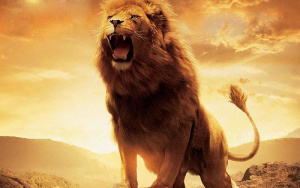An Allegorical God
God in allegory. Even though I’m an allegorical writer myself, I often have issues with this one. Well, maybe not issues. Let’s just say I approach it carefully.
God is sovereign. God is almighty and all-knowing. His ways are not our ways. How, then, can any writer��really do  Him justice in an allegory? We seek to know Him, but we’ll never know Him completely. Not on this side of death, anyway. If we did, He wouldn’t be God, right? But if we don’t understand Him, how can we write about Him in a way that will satisfy readers who want to see Him��in all His wonderful, awe-inspiring glory?
Him justice in an allegory? We seek to know Him, but we’ll never know Him completely. Not on this side of death, anyway. If we did, He wouldn’t be God, right? But if we don’t understand Him, how can we write about Him in a way that will satisfy readers who want to see Him��in all His wonderful, awe-inspiring glory?
I don’t have a cut and dried answer for this, really. I only know what I prefer when I read allegory, and the rules I personally follow when I write��God into an allegorical story of my own.
MYSTERY
An allegorical representation of God should be as mysterious as the true God. So we don’t understand all the facets of this God-character we write about. So our readers don’t. That’s ok. Use the mystery to good effect. Let the unknown deepen the reader’s experience of this God whose ways are not ours, and thus deepen their awe of Him.
EXTREME
Large or tiny. Roaring or whispering. God is anything but a lukewarm, mediocre Being. C.S. Lewis uses a great lion to represent God in his Chronicles of Narnia. In one scene of my book I represented God as a field mouse, whispering encouraging directions in the ear of the protagonist before a battle. Anne Elisabeth Stengl represents the holy spirit with a wood thrush, which I absolutely love. Whether it be intriguing, awe-inspiring, or even quirky, the character a writer chooses to represent God has to be worthy of the reader’s attention and respect.
FEARED
God is to be feared. We fear His wrath, His judgment, His anger when we have chosen to disregard His Word. But take away that fear and you’re left with little love and no respect at all. That’s not a the type of ruler I’d want to follow. Whatever creature or person a writer chooses to use as her representation of God within her story, it should be one whose actions and power inspire a healthy fear. God has the power over life and death and time and all the earth. Fiction shouldn’t show Him as anything less.
LOVING
Yet beyond the fear, a writer must be sure to��show the deep and unconditional love God has for His creation. Fear alone can perhaps turn our heads and keep in our minds what will happen if we stray. But it’s love that binds us to Him, heart and soul. It’s God’s mercy and forgiveness and sacrifice that give us the passion to follow Him to the ends of the earth. So why should an allegorical God be any different?
Do you have any preferences when reading Christian allegory? What are the things you like to see in a symbolic fictional God figure?





